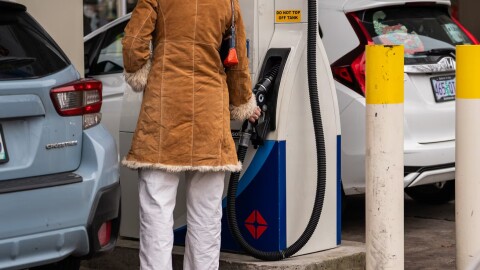-
Testimony against Senate Bill 1599 has so far overwhelmed support.
-
Republicans echoed concerns after an Oregon Journalism Project article highlighted 1935 case
-
The development comes after a Republican-led campaign delayed key tax increases in the bill.
-
Local agencies have shelved planned services and upgrades to buildings amid funding uncertainties.
-
The submission will likely ensure a gas tax increase approved by lawmakers this year doesn’t take effect.
-
The initiative needed roughly 78,000 signatures by Dec. 30 to qualify for next year’s election. Backers say they have more than 150,000.
-
Republicans say they’ll insist voters get a say on new taxes in the Oregon transportation bill.
-
This year’s star-crossed special legislative session was the longest — and priciest — in more than a decade.
-
The proposal from Gov. Tina Kotek will hike gas taxes, registration fees and more.
-
Sen. Chris Gorsek, D-Gresham, is unable to come to the Capitol because of unspecified health struggles. His vote may be needed to pass Gov. Tina Kotek’s transportation funding bill.
-
Gov. Tina Kotek’s proposal to raise billions for road maintenance and public transit in the coming decade advanced by the barest of margins Monday. The tax bill needed help from a moderate Republican to make it over the finish line.
-
Democrats agreed to slash some funding they’d sought for public transit, and Gov. Tina Kotek remained scarce.
-
Democratic leaders have said finding a quorum would not be a problem as they look to raise transportation taxes. They were wrong Friday.
-
Lawmakers held their first public hearing Monday on Gov. Tina Kotek’s proposal to hike transportation taxes.















